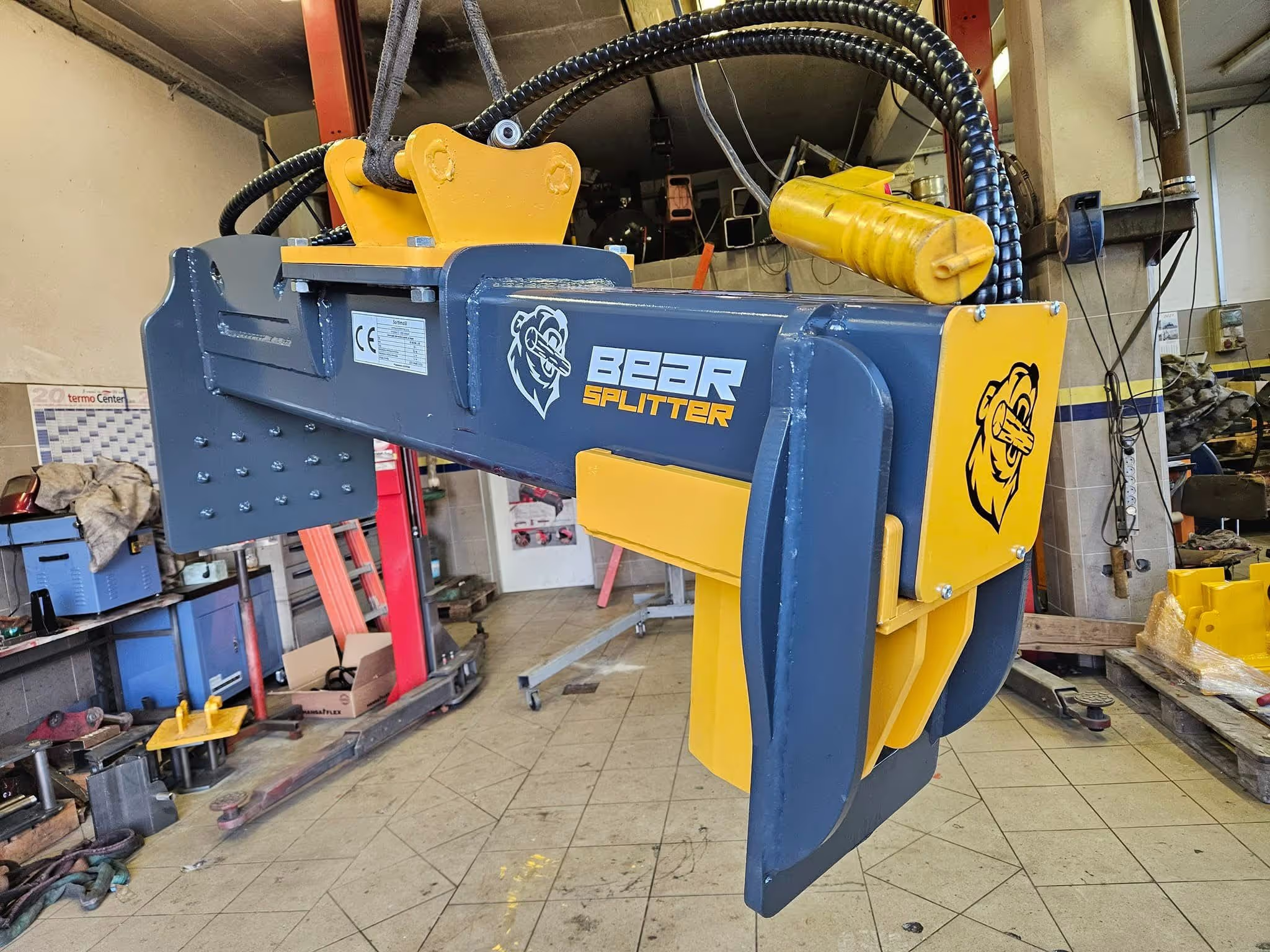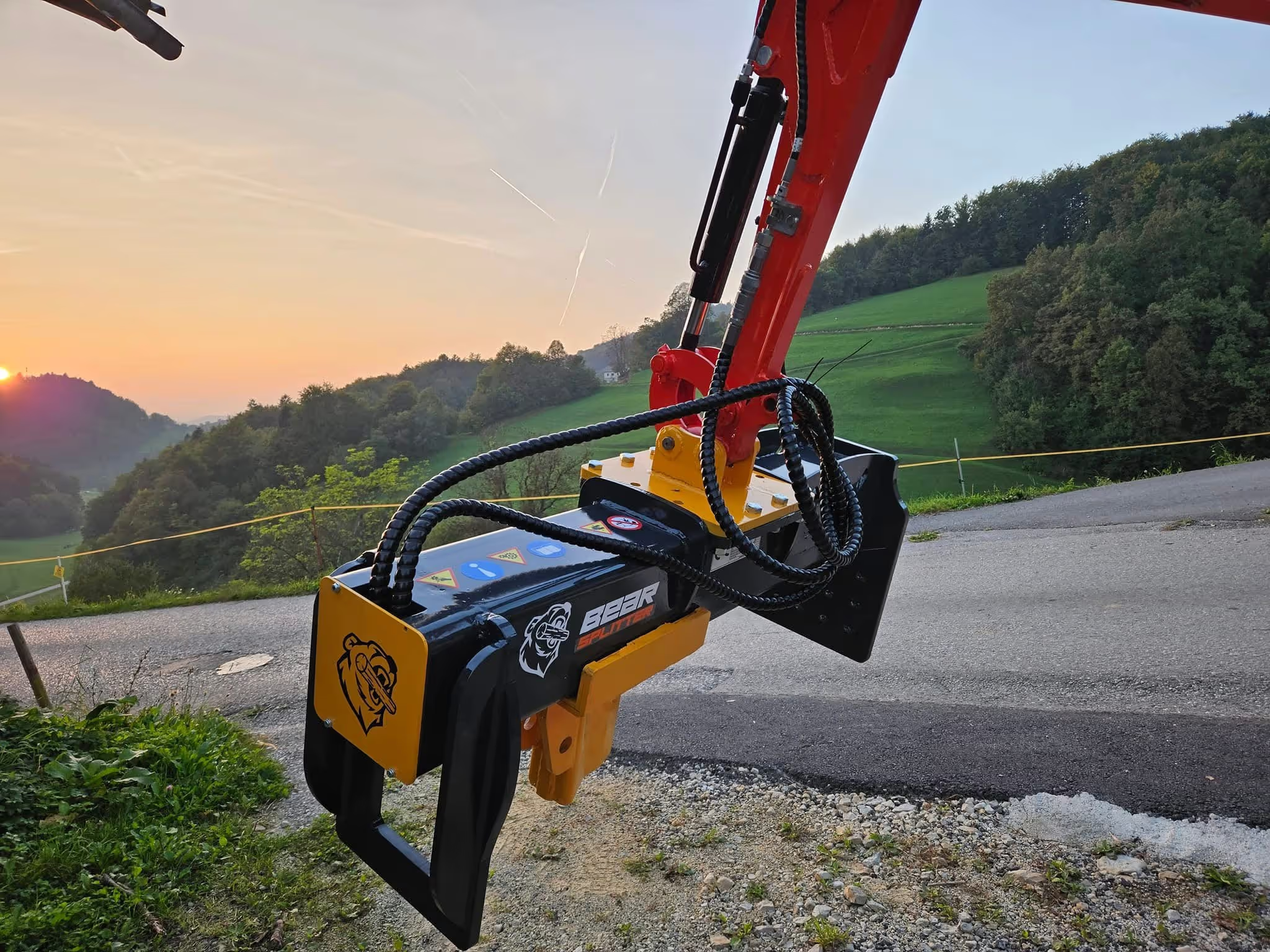Why choose a wood splitter today?
If you prepare more than a few cubes per season, it is wood splitter the fastest and safest way to even logs. Contemporary wood splitters are more efficient, quieter and at a lower cost per m³ than manual work. The key is right type, power and drive.

1. Types of splitters
Vertical wood splitter
Best for thick, knotty pieces (beech, oak). Less lifting, stable table; ideal when priority wattage and safe ergonomics.
Horizontal wood splitter
Compact, affordable and suitable for small to medium diameters and occasional use in the yard/workshop.
Combined (vertical/horizontal) wood splitters - Bearsplitter
Two-world flexibility; great if you vaccinate throughout the season mixed diameters.
Portable (mini) wood splitters
Small electric models for softer wood and smaller quantities. For harder deciduous trees, prefer stronger versions.
2. Power and tonnage - how to choose?
Rule of thumb: take One level stronger model from the minimum (less congestion, longer life of the splitter).
- Conifers (spruce/fir):~5-7tup to Ø ~25 cm.
- Medium-hard deciduous trees (beech/birch): 7-10tup to Ø ~30 cm; when knotted 10-12 t.
- Hard deciduous trees (oak/hornbeer/acacia): 12-20 tfor Ø 30-40 cm and uneven cuts.
If you often do fresh oak or very knotty wood, choose wood splitter with more power reserve.
3. Drives: electric, gasoline, PTO and excavator
- Electric (230/400 V wood splitters) - Quiet, clean, low maintenance; 230 V typically up to ~7 t, 400 V up to ~10-12 t.
- Gasoline wood splitter - mobility and more power in the field; count on engine service.
- Tractor (PTO) wood splitter - Robust pace and high tonnage for farms/profi.
- Hydraulic Splitter For Excavator (excavator cleaver, Holzspalter for excavator) - for maximum diameters and maximum productivity; connection to excavator hydraulics.
- Slitting and splitting machine - combination of sawing and grafting; for batch preparation of firewood (industrial/municipal use).
4. Safety and maintenance (mandatory routine)
- Personal protection: goggles/visor, gloves with good grip, safety footwear; in motor models also hearing protection.
- Flat base & landscaped environment:r emove sliding obstacles, clean up waste.
- Two-axis control
- Technique: align the log with the axis of the wedge; avoid lateral forces.
- Maintenance: hydraulic oil level and change, grinding/knife change, pipe/gasket inspection → less breakdowns, more safety.
Conclusion
Do you have a question or comment about our product or service? We are here to help you! Get in touch with us via the contact form, email or phone and we will do our best to answer you quickly and helpfully.
-

